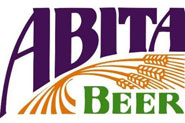
The Financial Times reported earlier this week that “bankers have been putting together a syndicate to raise around $60 [billion] of debt, which would fund the cash component of a European takeover,” by way of Anheuser-Busch InBev possibly absorbing SABMiller.
The website notes that a potential mega-merger has been rumored for more than a decade — industry analysts have long viewed SABMiller as a “possible target” acquisition for A-B InBev.
“Santander analysts last week noted ‘growing market chatter’ about the possibility of an AB-SAB merger,” the article said. “But because SAB had a ‘deep and valuable connection to the Coca-Cola system,’ they reckoned AB would first need to sever a relationship with PepsiCo that has until 2017 to run.”
Santander analysts say if the two conglomerates were to join forces, A-B “would probably need to offer a premium of about 40 [percent], which would give the brewer an enterprise value of $140 [billion].”
Rumors aside, A-B InBev has some (comparably) smaller assets in the news. According to Crain’s Chicago Business, Chicago Mayor Rahm Emanuel reportedly met with company executives in May to discuss the possibility of expanding Goose Island Beer Co. — which was acquired by A-B InBev in 2011 — by building a new facility on a “long-vacant site across the Chicago River.”

A-B InBev wouldn’t confirm if it had any pressing interest in expanding the Goose Island business, but said it could be possible “at some point.”
“It’s very possible that at some point we’ll need more capacity in Chicago, yet there are no dates or details on that right now,” Ken Stout, consumer experience director at Goose Island, told the site.
For what it’s worth, the article adds that Goose Island founder John Hall has long wanted to operate at the site in question, though its pursuit of the lot was always hamstrung by a lack of capital.
In news pertinent to all brewers, big and small and across the globe, Think Progress detailed this week three different ways how climate change just might “ruin your beer.”
In a nutshell, the three primary concerns revolve around water (or the lack thereof), the damaging of barley crops at the hands of both heavy rains and drought, and the adverse effects a warming world has on hops.
On the bright side, the article outlines what brewers — from the mammoths A-B InBev and SABMiller to craft brands like New Belgium Brewing Co. and Abita Brewing Co. — are doing not only to create sustainable practices, but also diminish their own carbon footprints.
One of the more interesting takeaways, however, is how A-B InBev is dealing with “concerns over drought and shrinking water supplies.”

Abita, on the other hand, installed 340 solar panels on its warehouse roof, which, according to the article, “was large enough to rank near the top of all commercial solar installations in the state of Louisiana.”
